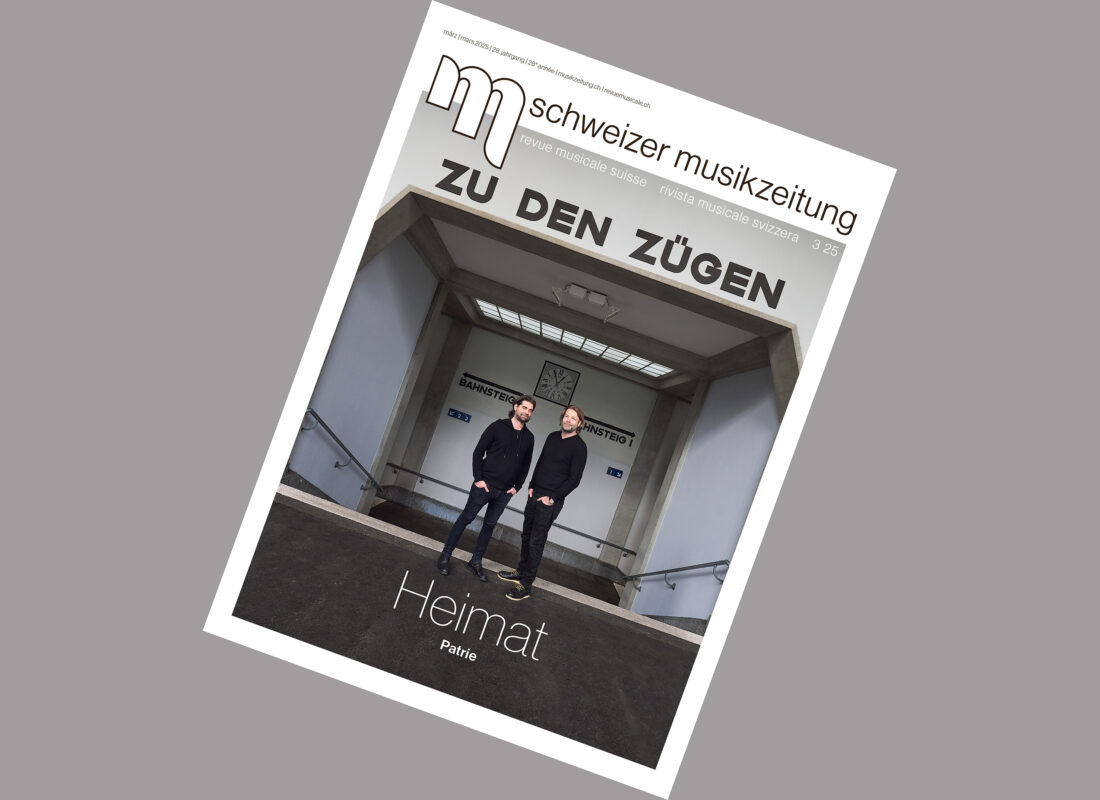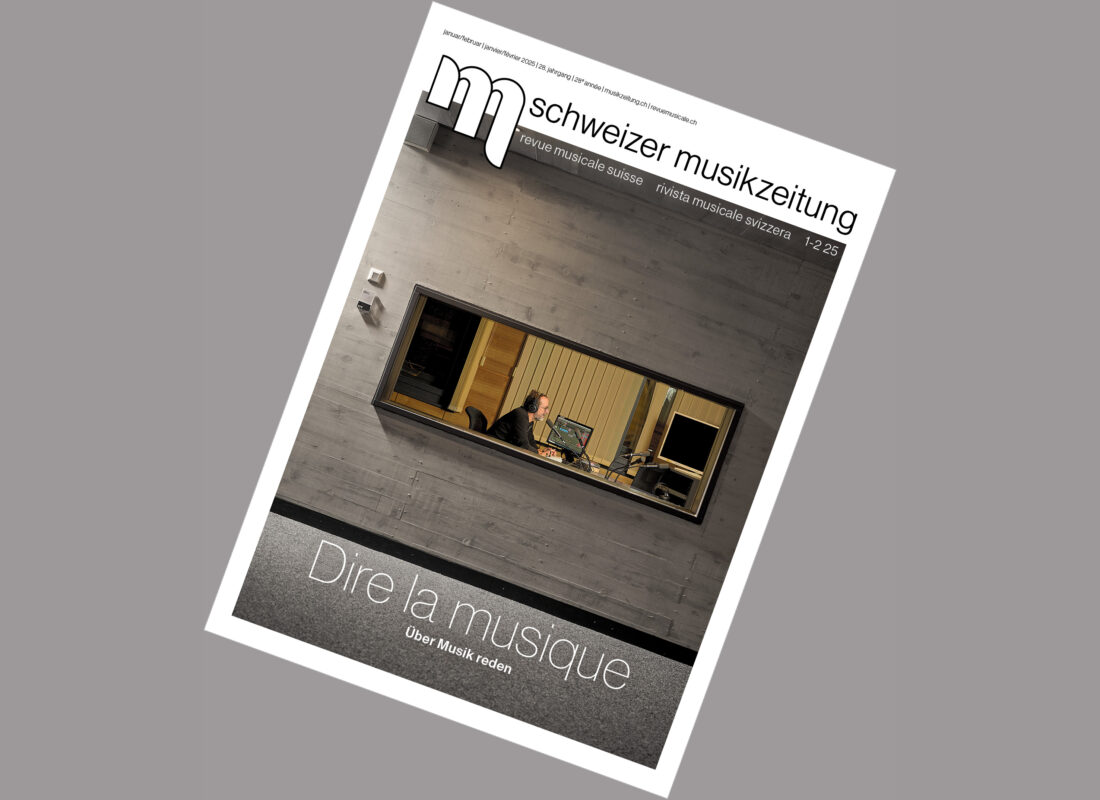Pension provision, taxes, legal matters
What usually comes across as a tangle of many detailed questions can be organized, e.g. into three subject areas: Pensions and insurance, taxes and legal matters. This article is intended to provide an overview of some important administrative topics and issues, not only for freelance musicians.


What usually comes across as a tangle of many detailed questions can be organized, e.g. into three subject areas: Pensions and insurance, taxes and legal matters. This article is intended to provide an overview of some important administrative topics and issues, not only for freelance musicians.
When it comes to filling out their tax returns, freelance musicians' heads are spinning. What have I actually earned this year? How do I declare concert fees that I received abroad? Can I deduct the flight to Vienna? And the piano tuner? And how does the AHV work anyway? ...
1. pension provision and insurance
The Swiss pension system is based on the so-called Three-pillar principle. The First pillar is the AHV, the state old-age and survivors' insurance. It is intended to secure the minimum subsistence level for people of retirement age. OASI is compulsory, and anyone who fails to pay the annual contributions risks having their pension reduced.
The second pillar is the pension fund, the BVG occupational benefit scheme. Its aim is to maintain the previous standard of living at retirement age. Pension funds are privately organized and therefore have very different structures. Everyone in an employment relationship is affiliated to a pension fund; the employer and the employee each pay half of the monthly contributions. The situation is completely different for freelance professionals, who are not generally members of a pension fund. If you still want to join a pension fund to save for your own retirement, you can do so with the Pension Fund for Music and Education, for example.
Then there is another third pillarVoluntary savings, divided into tied and untied savings. With tied savings (pillar 3a), the money paid in can only be withdrawn at retirement age. Unrestricted savings are deposits into any savings account - you can withdraw this money at any time. Voluntary savings play an important role for freelance professionals without a second pillar.
Checklist
The following checklist can help you to get an overview of your pension situation.
Pillar 1 - the AHV
Am I registered as self-employed with an AHV compensation fund (usually in my canton of residence)?
oYes: no steps necessary
oNo: Contact the compensation office of the canton of residence for registration
Have I paid my contributions regularly (at least CHF 480 per year)?
oYes: No steps necessary
oNo: Order a statement of your individual account from the compensation office. Check this immediately and if you discover gaps in the last 5 years, contact the compensation office to pay the amounts in arrears. Gaps dating back more than 5 years can no longer be filled.
Good to know:
- Freelancers receive monthly or quarterly invoices from the AHV for their contributions. The AHV only determines the definitive income after the tax return has been submitted. If this was higher than the basis of the amounts paid in, you will receive an additional charge - including hefty interest on arrears, sometimes for one to two years! To avoid such an unpleasant surprise, it is worth reporting an income to the AHV that is higher than expected (this way the AHV will pay you interest and the overpayments will be refunded). This notification can be made at any time by telephone or in writing to the compensation office.
- Anyone who wants to draw a pension at retirement age must register with the AHV - this is not automatic.Further links:
–http://www.ausgleichskasse.ch (List of cantonal compensation funds)
–https://www.svazurich.ch (Compensation Office of the Canton of Zurich)
–https://www.ahv-iv.ch (AHV information center with many leaflets and brochures)
Pillar 2 - the occupational benefit schemeDo/should I join a pension fund?
oAdvantages:- Saving works without me having to worry about it all the time
- The pension funds also insure risks (illness, widow's pensions, disability pensions)
- Contributions can be deducted from taxesoDisadvantages
- Freelancers must pay employee and employer contributions
- The later I get in, the less I get out of it
- The development of pension funds and pensions is uncertain (falling conversion rate)
Good to know:
Did you have a permanent job and are now a freelancer at 100%? Then your savings contributions should have been paid into a blocked account. If not, it is possible that the money is still with the pension fund of your former employer - it is worth asking there. After a few years, the pension funds pay such lost money into the BVG Substitute Occupational Benefit Institution. There are currently around 3 billion forgotten BVG assets there. You can enquire about your pension fund assets at the BVG Central Office: http://www.zentralstelle.ch
Further links:
–http://www.musikundbildung.ch/de (Pension Fund Music and Education)
– http://www.bsv.admin.ch/themen/vorsorge/00039/00335 (Federal Social Insurance Office with information on occupational pensions)3rd pillar - voluntary savings
Voluntary savings are very important for all working people without a second pillar - the AHV pension is modest and not enough to live on. Tied savings are made either via a 3a bank account or a life insurance policy - although the latter has not usually offered very good deals in recent years.
Working people without a second pillar can deduct a much higher amount for voluntary savings in their tax return (maximum CHF 33ʼ840 or 20% of income).
In order to find a sensible approach to pension issues, you need to take a broad view. In addition to the technical possibilities of the three pillars, the environment also plays a role. The situation is viewed differently if, for example, the spouse has a permanent job with good earnings and an excellent pension fund. The individual desire for independence, fluctuations in income, future career plans and the asset situation must also be taken into account.
Further insurances
Liability insurance
Private liability insurance is a matter of course for most people. Check with your insurance company whether it also covers damage when you are out and about on business - not all insurance policies are the same. If you need professional liability insurance, it is recommended that you take it out. Although liability claims are rare, they can ruin your financial existence, especially if other people are injured.
Accident insurance
You should not do without accident insurance - it is inexpensive and important. If you are self-employed, it is best to ask your health insurance company about an accident supplement.
Daily sickness benefits insurance
You can insure your income in the event of illness with daily sickness benefits insurance. These are usually quite expensive, but you can reduce the premiums with waiting periods. This means that if the daily sickness benefits insurance does not have to pay out until one, two or even three months after the onset of an illness, the premium is significantly lower. Weighing up the benefits and costs of daily sickness benefits insurance is an individual matter. Nobody wants to fall ill in the long term, but it is worth considering what the consequences might be. Do you live in an environment that is dependent on your income, e.g. your family? Or do you live in a partnership that is not dependent on two incomes?
Property insurance
Property insurance can be used to insure valuable instruments, for example.
Insurance provider
You can find all of these insurance policies from private providers. It is usually worth obtaining several quotes and having them explained to you by an insurance agent. Or you can seek advice from an independent insurance specialist.
Axa Winterthur, for example, offers a comprehensive range of products, some of which include discounts for musicians who work at VMS music schools. Personal advice: Telephone 061 284 66 66 or AXA.ch/vms
The SMPV has negotiated various benefits for its members with various providers (instrument insurance, legal protection, health insurance, loss of earnings): http://www.smpv.ch/zv_mitglieder_verguenstigungen.cfm?p=1252
The same applies to the SMV (supplementary health insurance, daily sickness benefits, accident insurance, private insurance, instrument insurance): http://smv.ch/service/dienstleistungsangebot-fur-smv-mitglieder
Information on social insurance can be found on the website of the Federal Social Insurance Office: http://www.bsv.admin.ch/kmu/ratgeber/index.html?lang=de
A word about the Unemployment insuranceThere is no way for freelancers to insure themselves against unemployment. This is reserved for employees.

- Graphic: Franziska Weber
2. taxes
As a general rule, anyone with unlimited tax liability in Switzerland must declare all of their assets and income in their tax return - even if these are located abroad or were earned abroad. Some special features:
Withholding tax
It is possible that withholding tax was deducted from your fee when you performed abroad. Make two statements for your tax return, one each for income with and without withholding tax. The tax office will not tax your already taxed income a second time, but it will need this information to determine your tax rate.
Income
If you have a permanent part-time job, you will receive a salary statement from your employer. This income is included separately in your tax return and has nothing to do with your self-employed income. You declare income from self-employment separately.
Deductions
As a general rule, you can deduct expenses that are necessary to carry out your self-employed activity in your tax return. This includes travel expenses, transportation costs, specialist literature, sheet music, instrument repairs, piano tuners, studio rental etc. A healthy balance is important for things that you use both privately and professionally, such as your cell phone. If you use your cell phone 50% privately and 50% professionally, deduct 50% of the cell phone costs.
It is possible that the deductions exceed the income. However, the tax office will only accept this for a certain period of time (approx. 3 years).
Important: Keep receipts for income and deductions!
Completing a tax return for freelancers is quite complicated. It is often worth consulting a trustee for advice or to complete the tax return.
Most cantons offer software on their websites that makes completing your tax return much easier. The menu navigation is simple and asks the right questions so that deductions are less likely to be forgotten. Downloading this software is free of charge.
Residents of the Canton of Zurich can find the "PrivatTax" software here: https://www.steueramt.zh.ch/internet/finanzdirektion/ksta/de/steuererklaerung/software.html
3. legal matters
As long as you're out in the wild on your own, you're legally on dry land. But as soon as you team up with others, things can get slippery ... And since it's still a lot of fun to realize projects together, here are two situations that deserve our attention.
Situation 1: The chamber music ensemble as a simple company
You make music with two friends in a piano trio and organize a concert. Unfortunately, you have miscalculated something, the income does not cover the expenses and you have to pay the hall rental out of your own pocket. Your friend, the violinist, has organized the concert, but as he and the cellist are not solvent, the hall landlord turns to you with his claim. Do you have to pay for the hall hire?
Yes, you must, because as a chamber music ensemble you are a simple partnership. This legal form always comes into force when several people pursue a common purpose and no other legal form has been agreed. The Code of Obligations states, among other things, that the partners are jointly and severally liable to third parties unless they have agreed otherwise - which is why the landlord can demand the hall rent from you.
As is so often the case in legal matters, the same applies here: As long as everything goes well, nobody will be interested in your legal form, and where there is no plaintiff, there is no judge. Nevertheless, it makes sense to know the legal framework in which you operate as an ensemble.
Situation 2: The project manager as employer
You would like to perform a chamber opera with a few musicians and have agreed to manage the project. The correspondence address is your home address and you issue the contracts with the musicians. In this situation, you are acting as a sole proprietorship - and you are the employer. This means that you must register the musicians with whom you conclude a contract with the AHV and also pay the AHV. Unless you work with self-employed musicians, in which case you should ask them for a confirmation of self-employment issued by the AHV. The AHV, in turn, will require you to take out accident insurance for your employees.
If you are planning to manage several projects, it makes sense to consider setting up an association. An association is easy to set up and it is only liable with the association's assets, so your private money is not involved in the project.
Copyright
Another complex legal issue is copyright. Suisa is the hub for all legal matters relating to copyright in the music business. www.suisa.ch offers a wealth of information for users, music producers, performers and composers.
The author
Franziska Weber is a pianist with a teaching diploma and a federally certified trustee. You can find more information and links on the subject on her website.








